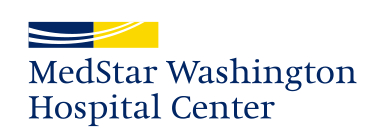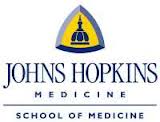Prospective Observational Study of the ICD in Sudden Cardiac Death Prevention
| Status: | Recruiting |
|---|---|
| Conditions: | Cardiology |
| Therapuetic Areas: | Cardiology / Vascular Diseases |
| Healthy: | No |
| Age Range: | 18 - 85 |
| Updated: | 8/18/2018 |
| Start Date: | June 2003 |
| End Date: | March 2020 |
| Contact: | Barbara Butcher, BSN |
| Email: | bbutche1@jhmi.edu |
| Phone: | 443 287-3472 |
Prospective Observational Study of the ICD in Sudden Cardiac Death Prevention (PROSe-ICD)
The overall hypothesis of this study is that subtle interactions between structural
(substrate) and functional (trigger) abnormalities of the heart, some of which are
genetically-determined, can be used to identify patients at high risk of sudden cardiac death
(SCD). Such information may be used to better define patients most likely to benefit from
replacement of an internal defibrillator (ICD). The prospective, observational study to
enroll, categorize and follow patients who receive an ICD pulse generator replacement for
primary prevention of SCD (PROSe-ICD) was established to :
1. to gain a better understanding of the biological mechanisms that predispose to SCD
2. to develop readily determined clinical, electrocardiographic, genetic and blood protein
markers identify patients with an increased risk of dying suddenly
(substrate) and functional (trigger) abnormalities of the heart, some of which are
genetically-determined, can be used to identify patients at high risk of sudden cardiac death
(SCD). Such information may be used to better define patients most likely to benefit from
replacement of an internal defibrillator (ICD). The prospective, observational study to
enroll, categorize and follow patients who receive an ICD pulse generator replacement for
primary prevention of SCD (PROSe-ICD) was established to :
1. to gain a better understanding of the biological mechanisms that predispose to SCD
2. to develop readily determined clinical, electrocardiographic, genetic and blood protein
markers identify patients with an increased risk of dying suddenly
PROSe-ICD is a multicenter prospective cohort study of patients who undergo ICD implantation
for primary prevention of SCD, designed to compare patients who sustain SCD (as measured by
an appropriate ICD firing for rapid VT or VF) to those who do not. The cohort for this
observational study consists of patients with cardiomyopathy who have an ICD implanted for
primary SCD prevention according to recent trials (MADIT II, SCD-HeFT, DEFINITE) and practice
guidelines.
Patients are followed longitudinally for clinical, ECG, genomic and proteomic markers and for
index events. The primary outcome variable is an appropriate adjudicated ICD firing for rapid
ventricular tachycardia or fibrillation.
The study standardizes initial therapeutic ICD settings, reflecting the current standard of
care rather than an intervention, because by definition the study cohort consists of patients
without a history of malignant arrhythmia, in whom the ICD functions simply as a
defibrillator rather than as a more complex device employing anti-tachycardia pacing or
tiered therapy. In order to facilitate the identification of rhythms prompting ICD therapy,
programming includes far field ventricular electrogram storage. For patients who have firings
(appropriate or not), all subsequent clinical care (including drug and device prescriptions)
will be managed independently by the clinical attending electrophysiologist/cardiologist
according to the local standard of care, unaffected by the study protocol. For safety
reasons, any clinically-significant data (such as symptomatic complaints or documented
episodes of ventricular arrhythmia) obtained during the study will be promptly communicated
to the clinical attending physician both by telephone and in writing.
After informed consent, patients undergo an initial history and examination conducted by an
attending electrophysiologist. Thereafter, patients are generally seen by an ICD nurse every
3 months and are evaluated for the purposes of the study every six months. The physician
and/or nurse will record the variables shown in Table D1 on paper forms or directly into
REDCap, web-based entry form. At each routine clinic visit (Q 3 month intervals) the ICD will
be interrogated and any episodes of ventricular tachycardia lasting >10 beats with a cycle
length < 400 ms, ventricular fibrillation, or any anti-tachycardia pacing or ICD therapies
will be recorded. If a ventricular arrhythmia is detected blood will be drawn and a digital
ECG will be performed as described for the 6 month follow up visits. Further evaluation and
treatment of the arrhythmia will be managed independently by the clinical attending
physician, who will be notified of the arrhythmia by telephone, with written confirmation and
documentation. At alternate visits (every 6 months) the patient will be evaluated by an
attending electrophysiologist, a 60cc blood sample will be obtained, a 5-minute digital ECG,
and any additional laboratory and diagnostic testing will be performed as clinically
indicated.
Data on clinical events (admission for MI/ACS, admission for CHF, diagnostic angiography,
revascularization, ICD device revision) will be collected by medical record review. Patients
will be followed for a minimum of ten years or until death, cardiac transplantation or
ventricular assist device implantation. A patient who experiences an appropriate ICD firing
will have been considered to meet the primary endpoint of the study but will continue to be
followed, particularly for the development of adverse events. We will continue to follow and
leverage this population as well as enroll additional patients who have ICDs in place and are
undergoing elective PG replacement for end-of-life indicators. The aims of this proposal are:
1. To determine if a panel of serum proteins and metabolites measured at baseline and at
replacement identifies patients who will experience ASD after PG replacement.
2. To determine if cardiac magnetic resonance imaging (CMR) performed around the time of PG
replacement identifies patients who will experience ASD after PG replacement.
3. To determine if baseline and serial ECG markers that are measures of conduction,
repolarization, autonomic tone (HRV, QTV, novel metrics such as entropy), VT
inducibility with programmed electrical stimulation at the time of PG exchange, and the
history of ICD shocks identifies patients who will experience ASD after ICD replacement.
4. To determine if baseline levels and changes over time (up to 5-years) in clinical ECG,
epigenetic, serum protein and metabolite markers predict ASD, overall survival and
trajectory of the HF phenotype in patients with a primary prevention ICD.
A clinical events committee comprised of three experienced electrophysiologists, who are not
investigators on this study or in the Hopkins Reynolds Center, adjudicate whether ICD firings
are appropriate and whether episodes of VT/VF are related to ischemia, based on reports of
device interrogation and other clinical documentation.The events committee will also
adjudicate deaths in the study as cardiac or non-cardiac and sudden or non-sudden by review
of the medical records, records of interviews of family and friends and ICD interrogation.
Death within one hour of symptom onset and/or VT/VF on ICD interrogation that was not
corrected by the device is considered SCD. All other deaths will be adjudicated as non-sudden
including any terminal or hospice chronic care patient whose ICD is programmed off.
for primary prevention of SCD, designed to compare patients who sustain SCD (as measured by
an appropriate ICD firing for rapid VT or VF) to those who do not. The cohort for this
observational study consists of patients with cardiomyopathy who have an ICD implanted for
primary SCD prevention according to recent trials (MADIT II, SCD-HeFT, DEFINITE) and practice
guidelines.
Patients are followed longitudinally for clinical, ECG, genomic and proteomic markers and for
index events. The primary outcome variable is an appropriate adjudicated ICD firing for rapid
ventricular tachycardia or fibrillation.
The study standardizes initial therapeutic ICD settings, reflecting the current standard of
care rather than an intervention, because by definition the study cohort consists of patients
without a history of malignant arrhythmia, in whom the ICD functions simply as a
defibrillator rather than as a more complex device employing anti-tachycardia pacing or
tiered therapy. In order to facilitate the identification of rhythms prompting ICD therapy,
programming includes far field ventricular electrogram storage. For patients who have firings
(appropriate or not), all subsequent clinical care (including drug and device prescriptions)
will be managed independently by the clinical attending electrophysiologist/cardiologist
according to the local standard of care, unaffected by the study protocol. For safety
reasons, any clinically-significant data (such as symptomatic complaints or documented
episodes of ventricular arrhythmia) obtained during the study will be promptly communicated
to the clinical attending physician both by telephone and in writing.
After informed consent, patients undergo an initial history and examination conducted by an
attending electrophysiologist. Thereafter, patients are generally seen by an ICD nurse every
3 months and are evaluated for the purposes of the study every six months. The physician
and/or nurse will record the variables shown in Table D1 on paper forms or directly into
REDCap, web-based entry form. At each routine clinic visit (Q 3 month intervals) the ICD will
be interrogated and any episodes of ventricular tachycardia lasting >10 beats with a cycle
length < 400 ms, ventricular fibrillation, or any anti-tachycardia pacing or ICD therapies
will be recorded. If a ventricular arrhythmia is detected blood will be drawn and a digital
ECG will be performed as described for the 6 month follow up visits. Further evaluation and
treatment of the arrhythmia will be managed independently by the clinical attending
physician, who will be notified of the arrhythmia by telephone, with written confirmation and
documentation. At alternate visits (every 6 months) the patient will be evaluated by an
attending electrophysiologist, a 60cc blood sample will be obtained, a 5-minute digital ECG,
and any additional laboratory and diagnostic testing will be performed as clinically
indicated.
Data on clinical events (admission for MI/ACS, admission for CHF, diagnostic angiography,
revascularization, ICD device revision) will be collected by medical record review. Patients
will be followed for a minimum of ten years or until death, cardiac transplantation or
ventricular assist device implantation. A patient who experiences an appropriate ICD firing
will have been considered to meet the primary endpoint of the study but will continue to be
followed, particularly for the development of adverse events. We will continue to follow and
leverage this population as well as enroll additional patients who have ICDs in place and are
undergoing elective PG replacement for end-of-life indicators. The aims of this proposal are:
1. To determine if a panel of serum proteins and metabolites measured at baseline and at
replacement identifies patients who will experience ASD after PG replacement.
2. To determine if cardiac magnetic resonance imaging (CMR) performed around the time of PG
replacement identifies patients who will experience ASD after PG replacement.
3. To determine if baseline and serial ECG markers that are measures of conduction,
repolarization, autonomic tone (HRV, QTV, novel metrics such as entropy), VT
inducibility with programmed electrical stimulation at the time of PG exchange, and the
history of ICD shocks identifies patients who will experience ASD after ICD replacement.
4. To determine if baseline levels and changes over time (up to 5-years) in clinical ECG,
epigenetic, serum protein and metabolite markers predict ASD, overall survival and
trajectory of the HF phenotype in patients with a primary prevention ICD.
A clinical events committee comprised of three experienced electrophysiologists, who are not
investigators on this study or in the Hopkins Reynolds Center, adjudicate whether ICD firings
are appropriate and whether episodes of VT/VF are related to ischemia, based on reports of
device interrogation and other clinical documentation.The events committee will also
adjudicate deaths in the study as cardiac or non-cardiac and sudden or non-sudden by review
of the medical records, records of interviews of family and friends and ICD interrogation.
Death within one hour of symptom onset and/or VT/VF on ICD interrogation that was not
corrected by the device is considered SCD. All other deaths will be adjudicated as non-sudden
including any terminal or hospice chronic care patient whose ICD is programmed off.
Inclusion Criteria:
- History of acute MI at least 4 weeks old
- Non-ischemic LV dysfunction for at least 9 months
- Who have an EF < or = to 35%
- Undergone first ERI generator replacement of an FDA-approved ICD for primary
prevention of SCD within 12 months of enrollment
Exclusion Criteria:
- ICD generator replacement for secondary prevention
- Inability or unwillingness to provide valid informed consent
- New York Heart Association Class IV heart failure
- Patients with pre-existing Class 1 indications for pacemaker therapy.
- CRT-D devices.
We found this trial at
4
sites
110 Irving St NW
Washington, District of Columbia 20010
Washington, District of Columbia 20010
(202) 877-7000

Phone: 202-877-7865
Washington Hosp Ctr MedStar Washington Hospital Center is a not-for-profit, 926-bed, major teaching and research...
Click here to add this to my saved trials
22 S Greene St
Baltimore, Maryland 21201
Baltimore, Maryland 21201
(410) 328-8667

Phone: 800-492-5538
University of Maryland Medical Center Founded in 1823 as the Baltimore Infirmary, the University of...
Click here to add this to my saved trials
733 North Broadway
Baltimore, Maryland 21205
Baltimore, Maryland 21205
(410) 955-3182

Phone: 443-287-3472
Johns Hopkins University School of Medicine Johns Hopkins Medicine (JHM), headquartered in Baltimore, Maryland, is...
Click here to add this to my saved trials
Click here to add this to my saved trials